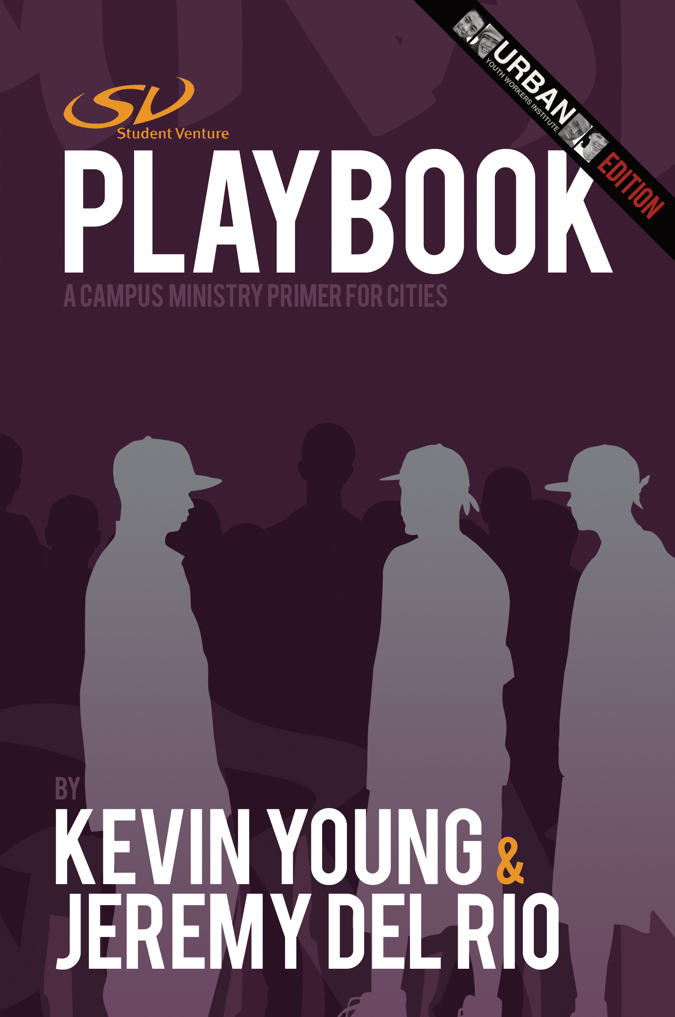« A Culture of Compassion | Home | Wednesday’s Weekly Webcast »
A Campus Ministry Primer for Cities
By Jeremy | April 17, 2007
______________________
Re-imagining JC
“The Word became flesh and blood and moved into the neighborhood.†- John 1:14, The MessageThere’s this teenage boy I know. He appears ordinary enough, with nothing much to distinguish himself except that he’s studious and works with his step dad in construction. Like many teens he’s struggling to find his place and feels like a curiosity. Living in the ghetto is hard, especially since he just immigrated to the neighborhood in the last few years. Try as he might, he hasn’t mastered the accent and local customs. And forget the slang; that’s like learning a third language. Worse, the old-timers all seem to know something about him that he hasn’t figured out yet. He gets the distinct impression they’re always talking about his family, reinforced by the overheard name-calling. A few of his schoolmates have teased him to his face, and one punched him in the nose after school. The soldiers occupying the streets find the bullying funny. Sometimes the mocking gets to him. He wants desperately to fight back, but mom forbids it, promising that someday the rejection will all make sense. He tries to take comfort in her words, but for now his heart just hurts, and the injustice makes him angry. So he sneaks off to the outskirts of town and hides behind an old sycamore tree. There he remembers what it was like in the refugee camp, and recollects vague memories of a midnight flight from the small town where he spent his childhood. The details are sketchy, but he remembers stories of bloodshed and murder that he barely escaped. Not fitting in has been a recurring theme for him. Then his memories fade, and he hears the echo of mom’s voice telling him about his birth. No way would his schoolmates ever find out he was born in a barn. The ammunition that would give them! They already call him choice animal names. But really, why did he have to be born in a barn? And why did it matter that Joseph wasn’t his real dad? And why did the gossips congregating at the stoop down the street call him a bastard and his mother a whore? Even if that was true, what business was it of theirs? And why did they disdain him as if he should be dead? Perhaps you know this friend of mine. No longer a nameless and faceless teenager, his name is revered and reviled around the world, and artists have imagined his likeness for centuries. In case you missed it in Sunday school, this boy we call Jesus Christ, “JC,†and he was an at-risk youth. In addition to angst-filled teen years, consider the risk factors that accompanied his birth: • Unwed mother (at a time when premarital pregnancies were punishable by death); • Late term desert travel (by donkey); • Unsanitary birth conditions (in a barn); • Lone survivor of genocidal hit attempt (by a despotic king); • Political refugee (in Egypt, a place self-respecting Jews avoided); • Cross cultural migration to the ghetto (what good came out of Nazareth?); • Military occupation by an oppressive regime (Rome was notorious for its brutality); and • Political instability and ongoing terrorism (the Zealots were among Palestine’s first terror organizations). As an urban youth worker I take comfort in the fact that the creator of heaven and earth chose this life for Himself. His manner of becoming flesh and blood and moving into the neighborhood kept it real before the phrase became cliché, and did so in a non-lyrical sort of way. It demonstrated a love so deep and mercies so unending that he literally became the marginalized and vulnerable and rejected teenager he longed so passionately to reach.
City Vision
Within its five boroughs, the City of New York is home to two million youth 18 and younger, by themselves the fifth largest city in America; 1.2 million of them attend the city’s 1,400 public schools (just the 10th largest city). The 563,000 NYC children who live below the poverty line would be the nation’s 25th largest city, and the 470,000 15-19 year olds would be its 35th largest. (Yes, everything is bigger in New York!) Your responsibility, as a campus minister, is to reach every one of those beloved young people. Granted, that might be slightly overstated, but the fact remains that reaching those two million souls – who represent 25% of the city’s overall population and exert disproportionate influence on global youth culture because of the city’s media and cultural significance – is nearer to God’s heart than almost anything else. “Let the little children come to me,†he said, “and do not hinder them, for the kingdom of God belongs to such as these†(Luke 18:15-17). Who’s more “like a child†– Christ’s prerequisite for entering His kingdom – than a child? Moreover, having been an at-risk youth himself, city kids are especially dear to Jesus’ heart. Consider those 1.1 million public school students. Although the city spends over $12 billion educating them, six in ten high school students will not receive a high school diploma; six in ten elementary school students cannot read at grade level and almost seven in ten cannot perform basic math computations. Of the city’s overall youth population, three in ten are trapped below the poverty line in generational poverty, and 72% of Latino and 61% of African American children live in poor families. These are the JCs he invites you to love, the lives he’s called you to serve, the souls he has trusted to your care. “I tell you the truth,†he says, “whatever you did for one of these least brothers of mine, you did for me†(Matthew 25:40).A Word about the Playbook
At its core, this Playbook is a tool to help you understand how to implement the Great Commission – “Go into all the world and make disciples of all nations†(Matthew 28:19) – in a manner consistent with the Great Commandment – “Love the Lord your God with all your heart and with all your soul and with all your strength and with all your mind; and, love your neighbor as yourself†(Luke 10:27) – in the context of New York City public schools. To that end, it is organized around four key Student Venture ministry principles: Preparation, Gathering, Visibility, and Leadership. Within each section you will find Commentary designed to illustrate the principle in a tangible setting, as well as a Game Plan consisting of memory joggers, tips, key skills, assessment questions, and suggestions for how to apply the principle in your unique context. Keep in mind, however, that the principles are not a formula, nor are they the exclusive prescription for how to reflect “the way, the truth, and the life†(John 14:6) on your campus. Instead, they present a framework for praying and planning and organizing your thoughts and actions. Working in your school with your students might reveal strategies beyond the imagination of the authors but very much in keeping with the “manifold wisdom†(Ephesians 3:10) of a God who specializes in doing “exceedingly, abundantly above all we can ask or imagine†(Eph. 3:20). As you refer to this Playbook, consider yourselves free to deviate from the four corners of its pages. When JC says, “Go there,†you go, even if “there†is just a direction without an immediately clear destination. If you find yourself in such unfamiliar territory, consider yourself in good company, for that’s exactly the same place God directed Abraham, Deborah, David, Esther, the disciples, every Hebrews 11 faith hero, and countless missional Christ followers for millennia of recorded history. - J. Del Rio dollar personal loan bank 5000 frommany airplane loans how monthsloan 1500 loan personalloan personal 1500loan term 401kcard credit accept loan new internetgrants and washington loans accessaccounting for loans penalty on prepayment MapTopics: adopt-a-school, books, evangelism, urban, youth, youth ministry | 3 Comments »

 Welcome to the professional website and personal weblog of Jeremy Del Rio. Whether you're a client, friend, or curious onlooker, please don't stay a spectator. Engage the conversation. Your contributions matter here.
Welcome to the professional website and personal weblog of Jeremy Del Rio. Whether you're a client, friend, or curious onlooker, please don't stay a spectator. Engage the conversation. Your contributions matter here.


















April 17th, 2007 at 8:30 pm
Jeremy… outstanding!
April 19th, 2007 at 3:25 pm
Jeremy.. it’s so good to see a piece of authentic work coming out ‘Real’ from NYC streets. I look forward to hearing about the impact around the country. -Max
May 6th, 2007 at 2:18 pm
Jeremy – I love the reminder of the God-with-us reality of who Jesus is & how that leads us to respond to at-risk youth like him. I posted about this here. Great job!!